That Number of Mine
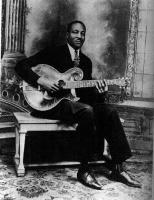
Big Bill Broonzy – That Number Of Mine - 1940
Tematica simile alla traccia " Unemployment Stomp " del 1938 e a “ Black, Brown and White" del 1951 ( entrambe di Broonzy, v.pagine di CCG) la cui 3.a strofa dira':
“I went to an employment office,
I got a number and I got in line,
They called everybody's number,
but they never did call mine.”
La frustrazione , in quegli anni comune a molti altri suoi coetanei di colore ,di non riuscire a trovare un lavoro ,e la necessita' di trasferirsi altrove nella speranza di essere piu' fortunati.
Il protagonista si trova in una affollata sede di collocamento al lavoro paragonata con ironia ad una vasca di pesci rossi ( “…that old goldfish bowl “). e con un numero di chiamata evidentemente troppo alto per poter sperare che la sua richiesta di lavoro venisse accolta.
Una amara considerazione è il tema dell'ultima strofa che mi sembra di interpretare... (Continues)
Tematica simile alla traccia " Unemployment Stomp " del 1938 e a “ Black, Brown and White" del 1951 ( entrambe di Broonzy, v.pagine di CCG) la cui 3.a strofa dira':
“I went to an employment office,
I got a number and I got in line,
They called everybody's number,
but they never did call mine.”
La frustrazione , in quegli anni comune a molti altri suoi coetanei di colore ,di non riuscire a trovare un lavoro ,e la necessita' di trasferirsi altrove nella speranza di essere piu' fortunati.
Il protagonista si trova in una affollata sede di collocamento al lavoro paragonata con ironia ad una vasca di pesci rossi ( “…that old goldfish bowl “). e con un numero di chiamata evidentemente troppo alto per poter sperare che la sua richiesta di lavoro venisse accolta.
Una amara considerazione è il tema dell'ultima strofa che mi sembra di interpretare... (Continues)
I was just sitting here wondering, what's my number in that old goldfish bowl?
(Continues)
(Continues)
Contributed by Pluck 2025/7/16 - 11:28
I'm Just a Bum
I’m Just A Bum - Big Bill Broonzy – 1935
Il protagonista della canzone puo'essere sia un uomo che una donna.La seconda strofa infatti cita : " I'm just a bum woman " e "Lord,I'm just a poor boy ". E'comunque molto triste, è solo,allontanato da casa dal padre, solo il Signore puo' comprendere la sua drammatica situazione. Vive la sua quotidiana poverta' e solitudine di "homeless" con l'aggravante del colore della sua pelle , motivo per cui tutti lo abbandonano. Da ultimo implora il poliziotto che lo ha fermato di non portarlo via . Tristezza, poverta', abbandono dagli affetti familiari e pregiudizi razziali sono le parole piu' significative di tutta la composizione.
Yeah I'm blue baby
(Continues)
(Continues)
Contributed by Pluck 2025/7/15 - 07:08
In the Army Now
In the Army Now - Big Bill Broonzy - 1941
Canzone pervasa da un senso di ironia mista a rassegnazione.
Big Bill non è certo contento di essere arruolato ed " usato " dal "caro vecchio" zio Sam.
Ma il senso del dovere ha il sopravvento.
Quando poi afferma che un giorno lo zio Sam lo rimanderà indietro c'è un chiaro riferimento a quanto puó accadere in combattimento ai comuni soldati, non certamente ai signori / padroni della guerra.
Fonte :
History on the Net
https://www.historyonthenet.com
Performed by Big Bill Broonzy
Recorded December 2, 1941
Written by Big Bill Broonzy
Canzone pervasa da un senso di ironia mista a rassegnazione.
Big Bill non è certo contento di essere arruolato ed " usato " dal "caro vecchio" zio Sam.
Ma il senso del dovere ha il sopravvento.
Quando poi afferma che un giorno lo zio Sam lo rimanderà indietro c'è un chiaro riferimento a quanto puó accadere in combattimento ai comuni soldati, non certamente ai signori / padroni della guerra.
Fonte :
History on the Net
https://www.historyonthenet.com
Performed by Big Bill Broonzy
Recorded December 2, 1941
Written by Big Bill Broonzy
I got a letter this morning from a dear old uncle of mine
(Continues)
(Continues)
Contributed by Pluck 2025/7/13 - 11:36
Goin' Down the Road Feelin' Bad
Anonymous
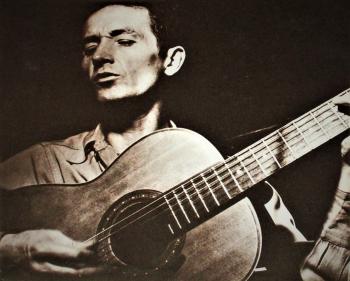
Propongo come testo base di numerose altre versioni quanto ha pubblicato John A.Lomax nel 1947 come segnalato da The Mudcat Cafe’.
(Pluck)
THE MUDCAT CAFE'
Subject: Lyr Add: GOIN' DOWN THE ROAD FEELIN' BAD (Lomax)
From: BrooklynJay
Date: 15 Oct 10 - 03:09 PM
The song turns up on page 242 of the 1947 book Folk Song U.S.A. by John A. Lomax and Alan Lomax, edited by son Alan.
"Going Down The Road Feeling Bad" (also known as the "Lonesome Road Blues") is a traditional American folk song, "a white blues of universal appeal and uncertain origin".
The song was recorded by many artists through the years. The first known recording is from 1923 by Henry Whitter, an Appalachian singer, as "Lonesome Road Blues". The earliest versions of the lyrics are from the perspective of an inmate in prison with the refrain, "I'm down in that jail on my knees" and a reference to eating "corn bread and... (Continues)
(Pluck)
THE MUDCAT CAFE'
Subject: Lyr Add: GOIN' DOWN THE ROAD FEELIN' BAD (Lomax)
From: BrooklynJay
Date: 15 Oct 10 - 03:09 PM
The song turns up on page 242 of the 1947 book Folk Song U.S.A. by John A. Lomax and Alan Lomax, edited by son Alan.
"Going Down The Road Feeling Bad" (also known as the "Lonesome Road Blues") is a traditional American folk song, "a white blues of universal appeal and uncertain origin".
The song was recorded by many artists through the years. The first known recording is from 1923 by Henry Whitter, an Appalachian singer, as "Lonesome Road Blues". The earliest versions of the lyrics are from the perspective of an inmate in prison with the refrain, "I'm down in that jail on my knees" and a reference to eating "corn bread and... (Continues)
I'm goin' down this road feelin' bad,
(Continues)
(Continues)
Contributed by Pluck 2025/5/14 - 10:41
Bottle It Up and Go
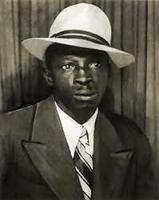
(da Wikipedia )
*Note: (Bluebird insert notes by M.K. Aldin)
(Brief & condensed) notes about this song)
Big Bill Broonzy told Tommy not to use the 'n' word.
But he got mad at Bill and said, 'Hell no, I'll never change my song'. Big Bill said he knew Tommy was right, the way he felt about it because he had sang the same words in another song of his
Before Tommy was born but knew better than to do it in the North...
The next night Big Bill took Tommy to a party, Tommy sang his version of 'Bottle It Up And Go.' The song flopped and Big Bill had to put Tommy out the window and they ran 5 miles to one of Big Bill's friend's house.
*Note: (Bluebird insert notes by M.K. Aldin)
(Brief & condensed) notes about this song)
Big Bill Broonzy told Tommy not to use the 'n' word.
But he got mad at Bill and said, 'Hell no, I'll never change my song'. Big Bill said he knew Tommy was right, the way he felt about it because he had sang the same words in another song of his
Before Tommy was born but knew better than to do it in the North...
The next night Big Bill took Tommy to a party, Tommy sang his version of 'Bottle It Up And Go.' The song flopped and Big Bill had to put Tommy out the window and they ran 5 miles to one of Big Bill's friend's house.
Yes, yas
(Continues)
(Continues)
Contributed by Pluck 2022/2/2 - 22:09
Song Itineraries:
Racism and Slavery in the USA
Mrs. McGrath
Anonymous
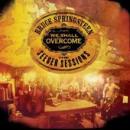
L'origine è irlandese e il periodo "La guerra dei Trent'anni". Della stessa epoca ne esistono versioni in Inghilterra mentre quelle americane sono successive e, ad ogni modo, erano conosciute solamente all'interno delle comunità irlandesi. Il Folk Revival americano l'ha riscoperta attorno al 1950 ed è diventata immediatamente e ovviamente un efficace inno di protesta contro ogni tipo di guerra. In Irlanda i primi ad interpretarla furono Peg (e Bob) Clangy, Robin Roberts e i Dubliners, in Inghilterra Pete Castle e Timothy Walsh, negli USA Ed McCurdy, Burl Ives, Pete Seeger in studio e anche dal vivo con Big Bill Broonzy. Io, la prima volta che l'ho ascoltata fu dalla, ancora a tutt'oggi, emozionanti voci del povero Tim Hart e della sua allora compagna Maddy Prior.
Flavio Poltronieri 2019/10/15 - 15:42
Starvation Blues
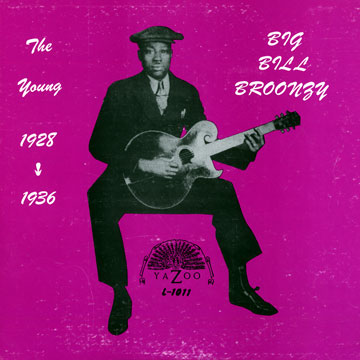
[1928]
Scritta da Broonzy all’inizio della sua carriera musicale a Chicago.
Da notare che questo blues su disoccupazione e fame data un anno prima del crollo di Wall Street…
Nella raccolta “The Young Big Bill Broonzy 1928-1936”, pubblicata nel 1968
Broonzy died in 1958, but his life in the blues spans the years from his 1928 song, “Starvation Blues,” to his prophetic condemnation of Jim Crow laws at the dawn of the civil rights era.
With real foresight, Broonzy captured the economic desperation approaching on the nation’s horizon in his “Starvation Blues,” written in 1928, a year before the stock market crash of October 1929. Even before the Depression struck with full force, the black community was in deep trouble and their growing poverty carried a warning of hard times to come for the rest of the nation.
Big Bill Broonzy’s “Starvation Blues” painted a stark picture of the hunger... (Continues)
Scritta da Broonzy all’inizio della sua carriera musicale a Chicago.
Da notare che questo blues su disoccupazione e fame data un anno prima del crollo di Wall Street…
Nella raccolta “The Young Big Bill Broonzy 1928-1936”, pubblicata nel 1968
Broonzy died in 1958, but his life in the blues spans the years from his 1928 song, “Starvation Blues,” to his prophetic condemnation of Jim Crow laws at the dawn of the civil rights era.
With real foresight, Broonzy captured the economic desperation approaching on the nation’s horizon in his “Starvation Blues,” written in 1928, a year before the stock market crash of October 1929. Even before the Depression struck with full force, the black community was in deep trouble and their growing poverty carried a warning of hard times to come for the rest of the nation.
Big Bill Broonzy’s “Starvation Blues” painted a stark picture of the hunger... (Continues)
Starvation in my kitchen
(Continues)
(Continues)
Contributed by Bernart Bartleby 2016/1/14 - 10:31
Song Itineraries:
The War of Labour: Emigration, Immigration, Exploitation, Slavery
Unemployment Stomp
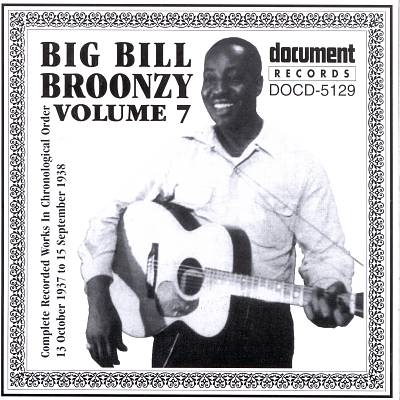
[1938]
Parole e musica di William Lee Conley (“Big Bill”) Broonzy (1893–1959), uno dei 17 figli di un “sharecropper”, un mezzadro di Scott, Mississippi.
Trovo il brano nelle raccolte “Brother, Can You Spare A Dime?: American Song During The Great Depression” (New World Records, 1977) e “Complete Recorded Works, Vol. 7 (1937-1938)”, pubblicata dalla Document Records nel 1992.
“When you work twelve months of the year as a farmer and don’t come out of debt, and the boss has to give you food on credit ’til the crop is sold, you can’t do nothing but get the blues.”, scriveva Big Bill Broonzy nella sua autobiografia intitolata “Big Bill’s Blues”.
Negli anni 20, come molti altri giovani neri, anche Big Bill prese la via del nord e a Chicago, nel 1927, incise la sua prima canzone, “House Rent Stomp”.
Molte delle sue canzoni raccontano della vita difficile degli afroamericani negli anni 30:... (Continues)
Parole e musica di William Lee Conley (“Big Bill”) Broonzy (1893–1959), uno dei 17 figli di un “sharecropper”, un mezzadro di Scott, Mississippi.
Trovo il brano nelle raccolte “Brother, Can You Spare A Dime?: American Song During The Great Depression” (New World Records, 1977) e “Complete Recorded Works, Vol. 7 (1937-1938)”, pubblicata dalla Document Records nel 1992.
“When you work twelve months of the year as a farmer and don’t come out of debt, and the boss has to give you food on credit ’til the crop is sold, you can’t do nothing but get the blues.”, scriveva Big Bill Broonzy nella sua autobiografia intitolata “Big Bill’s Blues”.
Negli anni 20, come molti altri giovani neri, anche Big Bill prese la via del nord e a Chicago, nel 1927, incise la sua prima canzone, “House Rent Stomp”.
Molte delle sue canzoni raccontano della vita difficile degli afroamericani negli anni 30:... (Continues)
I'm a law abiding citizen, and my debts I sure will pay,
(Continues)
(Continues)
Contributed by Bernart Bartleby 2015/5/22 - 10:15
Song Itineraries:
The War of Labour: Emigration, Immigration, Exploitation, Slavery
I Wonder When I'll Get To Be Called A Man
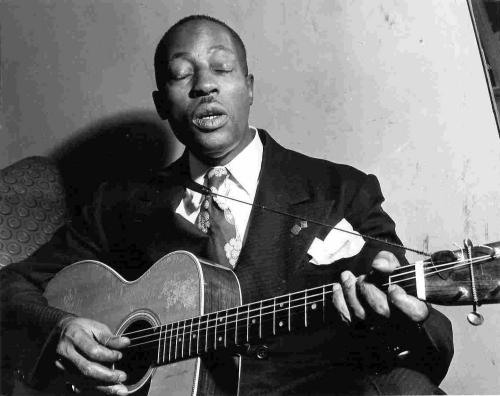
[1957]
Canzone scritta quando Broonzy aveva 53 anni ma registrata poco prima della morte, avvenuta nel 1958.
Il brano è contenuto nell'antologia intitolata "Trouble In Mind" (Smithsonian Folkways, 2000)
Canzone scritta quando Broonzy aveva 53 anni ma registrata poco prima della morte, avvenuta nel 1958.
Il brano è contenuto nell'antologia intitolata "Trouble In Mind" (Smithsonian Folkways, 2000)
When I was born into this world, this is what happened to me
(Continues)
(Continues)
Contributed by Alessandro 2009/6/10 - 14:48
×
![]()

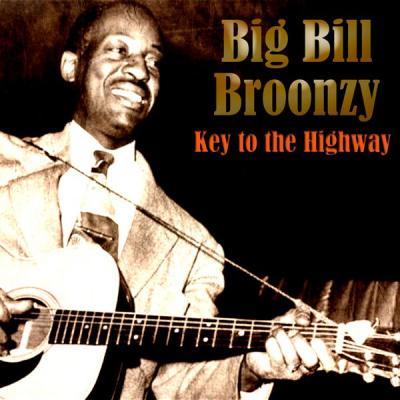
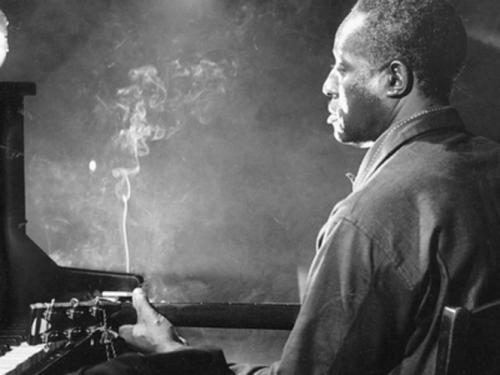
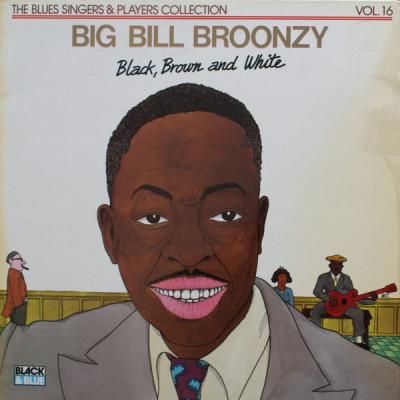
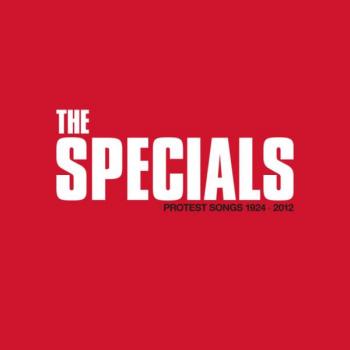
“Key to the Highway” is a blues standard that has been performed and recorded by several blues and other artists. Blues pianist Charlie Segar first recorded the song in 1940. Jazz Gillum and Big Bill Broonzy followed with recordings in 1940 and 1941, using an arrangement that has become the standard.
When Little Walter updated the song in 1958 in an electric Chicago blues style, it became a success on the R&B record chart. A variety of artists have since interpreted the song, including Eric Clapton, who recorded several versions. (Wikipedia)
Key to the Highway, recorded by Charles Segar, Big Bill Broonzy, Little Walter, and many others:
As far as I know, nobody has ever called this classic blues a song of protest, but I believe that it is quite likely that it was used to express protest. I've identified it as a protest song partly because... (Continues)